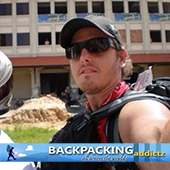Malaysia is a country of natural fusion, located on two separate landmasses on the east, nestled between Brunei and Indonesia and to the west, on the SEA mainland which if anything facilitates this fusion for what it is known for. If this means anything, it is double the fun for travellers. Malaysia’s rather strategic location allows it the best of many worlds: Chinese, Indian, and Malay to be exact offering something for everybody. Recurrent tourism ad campaigns feature the picturesque sceneries for a final coming together with the slogan “Truly Asia”-great resonance in terms of wording, but quite insufficient and politically provoking. But despite current turmoil that shakes the Muslim nation of say, a sodomizing politician, or unequal rights for non-natives, the people and places never lose charm and resplendence. This is frankly the place whatever happens, everything will be good, for the leisure travellers. The immigrant workers from poverty-stricken countries beg to differ because but behind that public glamour lies a hidden face of poverty, of forced labour, of massive human trafficking by a western designer labels that has to subsist and exist in the aims of industrialization. Still
In the end, this wonderful place still deserved the World’s Best Destination of 2006 perhaps in great part due to its diversity be it cultural, ethnographical, or geographical. As one of the largest economies in the South East Asia with a high-tech manufacturing industry, Malaysia continuously boasts of a densely forested terrain. It goes without saying that what is wild and rare here will always remain so, and what modernizes, do so for the good.
GEOGRAPHY
Malaysia (2 30 N, 112 30 E) is a country of thirteen states 329,847 km 2 big in whole. The West and East Malaysia, regardless of differences in cultures, remain similar in terms of terrain with coastal plans rolling to hills and mountains with thick forest covers of 59% of the total area. The highest peak and Malaysia’s pride is the Mount Kinabalu that has a summit of 4,095.2 metres. The lowest surface, on the other hand is the Indian Ocean that barely kisses it.
CLIMATE
The climate is equatorial or tropical and exhibits weather patterns apparent with most SEA countries: southwest monsoon from April to October, and northeast monsoon from November to February. As such, the ideal time to head down for a trek, a dive, or a swim would be during the cool and dry northeast monsoon months, the peak season, anytime from November through February, with emphasis on trekking and hiking. This is because highlands are vulnerable to landslides during the southwest monsoons due to some deforested parts. Typhoons are harsher and more common and accidents have happened in relation to this. During the hot season, forests on the other hand are more in danger for forest fires.
PEOPLE
Malaysia’s 25,715,819-population make it only the 46th of the most populated countries list, 62% of which are native Malays or Bumiputeras, including people indigenous to Malaysia, while the remainder consist of Chinese (24%), Indians (8%), and many other migrant workers, as multi-racial as it truly is. Malaysia is also multi-religious. It is Muslim predominantly (60.4%), Buddhist (19.2%), Christian (9.1%), Hindu (6.3%), Confucian and Taoist (2.6%), but that’s not the end of the list. Now that is diversity to the umpteenth degree.
LANGUAGE
In contrast, Malaysia has only one official language and that is BAHASA MELAYU or MALAY more commonly. ENGLISH plays an underground sort of official language as it is the language to know when travelling to Malaysia, if the traveller is short to no Malay-speaking. This is also mandatory to in schools and in all levels, and very handy in the large cities. This, like Singapore and the Philippines have a huge demographic of English speakers and their own Englishes to boot for the unique fusion it had with their own language. ARABIC, like English, is mandatory, but exclusively for Muslim Schools. Most students will have a functional and communicative command of Arabic. CHINESE and all its glorious dialects are omni-present from Cantonese, Mandarin, Fukien, Hakka, Hainan, and Foochow. Similarly, INDIAN languages are used and spoken, but it is a fact to never be forgotten that several indigenous languages area still widely spoken like Iban and Kadazan.
ATTRACTION
Kuala Lumpur is where this all comes together. KL is a vital element and introduction, and one perfect way to start a traveller’s Malaysian escapade. Urbanized and modernized as it is, this is where East meets West for Malaysia-that place to understand that Malaysians are open and inclined to change. Tall skyscrapers or getting a little acrophobic now? For who has not heard of the Petronas Twin Towers, the once tallest edifices in the world? Yes, the one Alain Roberts climbed just last year. That is unadulterated and genuine enthusiasm, just how Malaysia ought to be experienced. If the traveller seeks some enlightenment, a few hours and miles from the capital are the Batu Caves, a site for spirituality and rest, after 272 steps at least. This is the holiest pilgrimage site of all of Malaysia, and it’s worth the voyage with the imposing natural wonder as the limestone cliff. Malaysia has also one of the world’s greatest diving sites from Sipadan to Lang Tengah to Redang Island, one of more famous ones. Cameron Highlands Tea Plantations, an alternative kind of travel, is no less of an eye candy for it is a green lush beauty, plus smells great too. At the Thaipusam Festival, there’s no need to plunge a lime and spear to the cheeks. Watching is fine…really.
If you are into the road-less-travelled sort of fun, there are lots to be discovered here like the South Beach of Perhentian Besar of the east coast. Touristy-wise, Tioman Island, one of the most gorgeous islands in the world and Langkawi’s 99 islands render the best spread of choices for natural spectacles-mangroves, beaches, rainforests, and mountains. But Sungai Kampar is the hotspot for white water rafting.
The perfect place to end a Malaysian journey and the only excusable time to cry and say goodbye is upon reaching the summit of Mt. Kinabalu, the highest peak in Malaysia and Borneo, where the traveller can catch a 360 ° view of the wonderful magnificent place that is synonymous to the “right decision”. When a bit out of shape, a trek to the rainforests of Genting Highlands, Kinabalu National Park or the Taman Negara National Park will without a shadow of a doubt suffice as well.
FOOD
Penang however is a different attraction in itself. This was the Pearl of the Orient, with cuisine so unparalleled, so diverse, uber cultural. This is the place you go to fully acquaint the self. Penang is a food paradise with all the tasty things and incredible fusion of world eats. Like Penang, Kampu Barung will give the traveller a quick introduction to Malaysian ethnography, geography, and history and gastronomy in less than 15 minutes, within just a bowl of Torpedo soup, but Char Kuay Teow is indisputably the dish of Penang. Unfortunately, it is a bull’s testicles, and eating with the hands is etiquette, like washing the hands is as well.
Rice in all forms is loved and eaten, as a meal or dessert. Hence, it is a staple. Food eaten at home vary from authentic Indian and Chinese but Malaysian cuisine has come to evolve to savoury localized versions of Indian and Chinese infused with native Malay meals. Other carbo sources are noodles like Bi Hoon, Koay Teow, Mee Suah etc. and pan breads like roti canai, thosai, idli, and puri. Nasi Lemak is said to be the national dish for its valid Malay origin and is rice steamed with coconut milk served with curry or meat stews or chilli shrimp paste. Murtabak, folded crisp pancake with eggs, meat, and onions is a ubiquitous street food. Consumption of meets is religion-sensitive, making chicken a fair-priced flexible food buddy, typically cooked ala satay. Teh Tarik or “pulled tea” is by now a very famous drink and art form not just in Malaysia but the rest of the world.
In general, curry dishes are manifestations of Indian influence, while dim sum and noodles, of Chinese. As a multiracial and multicultural foodie state, the list of food runs forever. The desserts are simpler and more delightful to expound on, like the taste. Desserts have simpler variations though, hot and cold, liquid and solid. Sweet is universal. Cendol and ais kacang are cold deserts. Ais kacang is a dessert of sweet corn, red beans, and jelly on a bed of soft shaved ice with either coconut or condensed milk, while pulut hitam, black rice porridge with coconut milk, and bubur cha cha, coconut soup with yam, sweet potato, and sago are served hot.
Normally good food is a happy convergence of many events, but in Malaysia, it only has to smell and taste good. Much like any place in the world, Malaysia is a melting pot of cultures, but none as showy. Perhaps it is tagged Truly Asia because it has many wonders of Asia in one exciting location, or two.
Josh Boorman
Editor-in-chief
Backpacking Addictz
Twitter: @backpackaddictz
Backpacking Addictz is a website set up by backpackers for the use of backpackers. On this site you will find a lot of very valuable backpacking information surrounding different destinations and countries from around the world. Also very helpful backpacking tips and travel advice on planning a budget travel and backpacking adventure. You will also find an enthusiastic and insightful backpacking blog which is regularly updated with new posts and article.
Backpacking Addictz Travel eGuides are a fantastic, cheap and easy way to get hold of a vast amount of backpacking information prior to setting off on your backpacking adventure.







Leave A Response